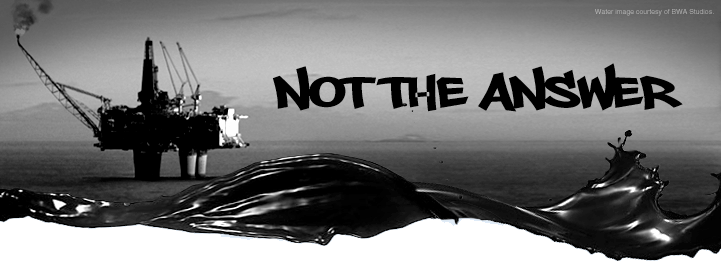Thursday, February 24, 2011
Spike in baby dolphins deaths in the Gulf
Baby dolphins, some barely three feet in length, are washing up along the Mississippi and Alabama shorelines at about 10 times the normal number for the first two months of the year, researchers are finding.
As now February 17th, seventeen young dolphins, either aborted before they reached maturity or dead soon after birth, have been collected on the coasts of the states in the past two weeks, both on the barrier islands and mainland beaches.
This is the first birthing season for dolphins since the BP oil spill in the Gulf of Mexico; however, Moby Solangi, director of the Institute for Marine Mammal Studies in Gulfport, said it’s too early to tell why they died.
Today the count is up to 24 stillborn or infant calves that have washed ashore in the two states.
What’s happening here falls under the formal designation of an Unusual Mortality Event, which requires special scrutiny by a panel of scientists and experts, and gives high priority to samples collected.
But scientists caution about jumping to conclusions because a number of factors can cause dolphin deaths.
We'll be keep our eye on this story as it develops. Stay tuned.
Read more:
17 Dead Baby Dolphins found in Gulf waters
Spike Reported in number of stillborn dolphins on coast
Fourth baby dolphin found dead on Horn Island
Baby Dolphin Deaths get fed's attention
Labels:
dolphins,
Gulf disaster,
oil spill
Wednesday, February 23, 2011
Federal Legislation Update
 A number of bills have been introduced in Congress this session that would restrict or ban new offshore drilling or improve the regulation, safety, and oversight of drilling activities.
A number of bills have been introduced in Congress this session that would restrict or ban new offshore drilling or improve the regulation, safety, and oversight of drilling activities.The strongest of these is the NO NEW DRILLING ACT (HR 261), which would ban all new offshore drilling in the United States. For more info on HR 261 and to participate in the Action Alert, please click here.
Some additional bills on offshore drilling are summarized below. We encourage you to call your congressman to ask him/ her to support the No New Drilling Act and other bills that will protect our coasts from offshore drilling.
WEST COAST OCEAN PROTECTION ACT (H.R. 612)
Representative Garamendi (D-CA) introduced the West Coast Ocean Protection Act of 2011 (H.R. 612) to amend the Outer Continental Shelf Lands Act to permanently prohibit the conduct of offshore drilling on the outer Continental Shelf off the coast of California, Oregon, and Washington.
OIL SPILL COMMISSION RECOMMENDATIONS ACT (H.R. 501)
Representative Edward Markey (D-MA) introduced H.R. 501 to provide for the implementation of the recommendations of the National Commission on the BP Deepwater Horizon Oil Spill and Offshore Drilling. The bill also includes elements from the oil spill response bill that the House passed in July of 2010.
NORTHERN CALIFORNIA OCEAN & COASTAL PROTECTION ACT (HR 204)
Congressman Mike Thompson (D-North Coast) reintroduced legislation that would permanently prohibit oil and gas drilling off the coasts of Mendocino, Humboldt and Del Norte Counties to protect the unique and dynamic marine environment along the northern coast of California.
BIG OIL BAILOUT PREVENTION ACT (HR 492)
Representative Holt (D-NJ) introduced the Big Oil Bailout Prevention Act of 2011 (H.R. 492) to amend the Oil Pollution Act of 1990 to require responsible parties to pay the full cost of offshore oil spills, and for other purposes. (1/26/11). Senator Menendez (D-NJ) introduced a similar version in the Senate: Big Oil Bailout Prevention Unlimited Liability Act of 2011 (S. 214)
BIG OIL BAILOUT PREVENTION TRUST FUND ACT (S 215)
Senator Menendez (D-NJ) introduced the Big Oil Bailout Prevention Trust Fund Act of 2011 (S. 215) to amend the Internal Revenue Code of 1986 to require oil polluters to pay the full cost of oil spills, and for other purposes. (1/27/11).
RESOURCES OF OIL SPILL RESEARCH & PREVENTION ACT (S. 204)
Senator Begich (D-AK) introduced the Resources of Oil Spill Research and Prevention Act (S. 204) to amend the Oil Pollution Act of 1990 to permit funds in the Oil Spill Liability Trust to be used by the National Oceanic and Atmospheric Administration, the Coast Guard, and other Federal agencies for certain research, prevention, and response capabilities with respect to discharges of oil, for environmental studies, and for grant programs to communities affected by oil spills on the outer Continental Shelf, and to provide funding for such uses and for other purposes.
Tuesday, February 22, 2011
Lot of Talk, Little Action in Coastal Oil Spill Cleanup
WKRG.com News
More frustration on the gulf coast tonight as we have few answers about what coastal communities see as major issues in their recovery from the BP oil spill. There were a lot of high hopes for a work session but in the end it seems like there are only more frustrations.
Part of a tar mat taken out of the surf of West Beach lies on the front table of the council chambers in Orange Beach. It is what so many are concerned with along the gulf coast.
Federal incident commander and Coast Guard Captain James Hanzalik has seen it before. "I've been doing oil spills for 25 years. It's not surprising that you may see something like this especially the large volume of oil that was spilled. It's historic."
It's one of the issues that state and local leaders from Alabama and Florida hoped would be addressed during a working session with Coast Guard and BP officials according to Orange Beach Mayor Tony Kennon. "Tar mats, they looked at me like a deer in the headlights. They did not acknowledge there was any tar mats out there. They told me to call them if I found one."
Read more...
Labels:
Alabama,
Fail,
Florida,
gulf oil spill,
tar mats
Wednesday, February 9, 2011
The Bureau of Ocean Energy Management, Regulation and Enforcement (BOEMRE) to Hold Hearings on New Leasing Plan.
BOEMRE (the agency responsible for making decisions about offshore oil drilling) will be holding public meetings around the country in coming weeks to take public comment on the next "5-year plan" in which they will analyze new drilling leases in the Gulf of Mexico and in the Arctic Ocean.
Fortunately, on Dec 1 2010, the Obama Administration announced a deferment on new offshore drilling in the Atlantic, Pacific, near Florida's Gulf Coast, and in Alaska’s Bristol Bay until at least 2017.
The upcoming meetings are chances to tell BOEMRE we support the Administration's decision to defer drilling; and that no new leases for drilling anywhere should be granted until after the recommendations of the Oil Spill Commission are adopted by Congress. Some of the more important recommendations from the Commission report include:
- Requiring better emergency response plans for offshore drilling operations
- A stronger regulatory structure is in place to avoid spills.
- Ensuring science is used in decision-making about offshore leasing and allowing chief scientists within the Interior Department to oversee leasing decisions
- Lengthening the time for review of drilling applications to allow for more thorough assessment of the potential environmental and safety risks of the project.
- We support the Obama Administration’s recent decision to defer new offshore drilling in the Atlantic, Pacific, near Florida’s Gulf Coast, and in Alaska’s Bristol Bay until at least 2017. It’s critical we protect areas that have not been exposed to the risky practice of drilling--not only for the sake of the environment, but also to protect our economy from potential spills.
- The Oil Spill Commission and the Obama administration have worked to ensure the oil industry is safer and more environmentally sensitive. We greatly appreciate these efforts, and we want to stress that the safest drilling is no drilling. We should work to protect our coasts permanently by reducing our oil dependence while transitioning to sustainable forms of energy.
- Please consider not approving new leases in the Gulf of Mexico and the Arctic until after Congress adopts the recommendations of the Oil Spill Commission (see above for important points).
- For future oil exploration, please consider the harmful environmental impacts of seismic surveying; and equally consider alternatives to seismic testing that will exist in the near future.
- We want to thank the Administration, Department of Interior, the Oil Spill Commission, and BOEMRE for working to protect our oceans and coasts from devastating impacts of offshore oil drilling. We applaud your efforts to hold the oil and gas industry to higher standards in hopes of preventing another destructive spill like we witnessed with the BP Deepwater Horizon.
Below is a list of meetings near your neighborhood:
- Monday, February 14, 2011 at 7:00 pm- Kotzebue Middle-High School, 744 Third Avenue, Kotzebue, Alaska.
- Tuesday, February 15, 2011 at 1:00 pm- Houston Airport Marriott at George Bush International, 18700 John F. Kennedy Blvd., Houston, Texas
- Tuesday, February 15, 2011 at 7:00 pm: Point Hope School Library, Point Hope, Alaska
- Wednesday, February 16, 2011 at 1:00 pm: New Orleans Airport Hilton, 901 Airline Dr., Kenner, Louisiana,
- Wednesday, February 16, 2011 at 7:00 pm: Point Lay Community Center, Point Lay, Alaska
- Thursday, February 17, 2011 at 1:00pm: Five Rivers-Alabama’s Delta Resource Center, 30945 Five Rivers Blvd., Spanish Fort, Alabama
- Thursday, February 17, 2011 at 7:00pm: Alak School Library, Wainwright, Alaska
- Monday, February 21, 2011 at 7:00 pm: Inupiat Heritage Center, Barrow, Alaska
- Tuesday, February 22, 2011 at 7:00 pm: Nuiqsut Community Center, Nuiqsut, Alaska
- Wednesday, February 23, 2011 at 7:00 pm: Kaktovik Community Center, Kaktovik, Alaska
- Thursday, February 24, 2011 at 1:00 pm: Washington Dulles Airport Marriott, 45020 Aviation Dr., Dulles, Virginia.
- Friday, February 25, 2011 at 7:00 pm: BOEMRE Alaska Region Office, 3801 Centerpoint Dr., Anchorage, Alaska
Subscribe to:
Posts (Atom)








 ;
;



